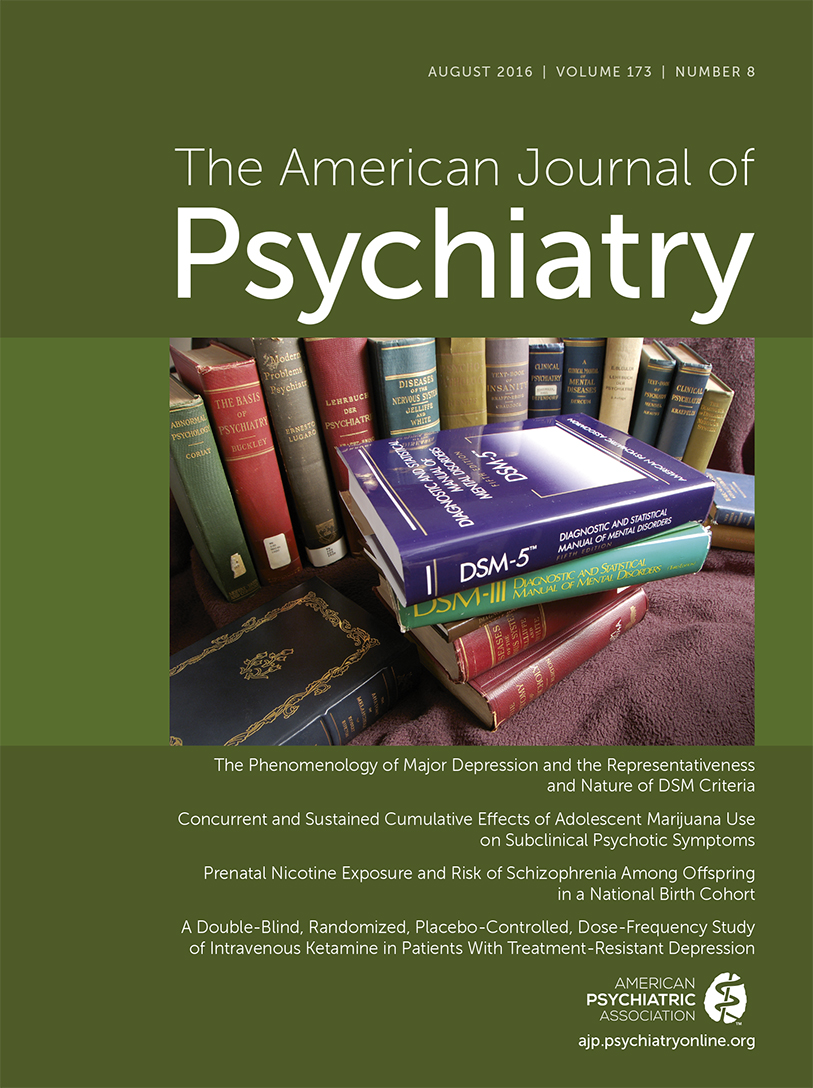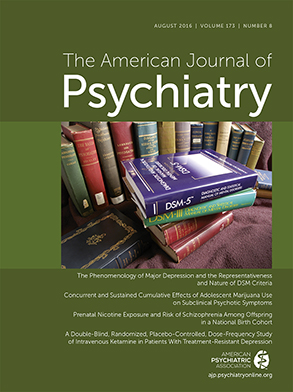T
o the E
ditor: We read with interest the contribution by Jakubovski and colleagues (
1), published in the February 2016 issue of the
Journal, on the important issue of possible dose-dependency of selective serotonin reuptake inhibitors (SSRIs). While we do not question the conclusion that the antidepressant effect of SSRIs is associated with dosage, we believe that some clarifications are warranted to interpret the finding that dosages above those normally recommended are associated with a better outcome.
According to an accompanying editorial comment (
2), this meta-analysis was based on fixed-dose trials only. This, however, seems to be a misunderstanding; consulting the references shows that a majority of the included trials are flexible-dose trials. In line with this, the presentation of inclusion and exclusion criteria does not indicate that flexible-dose trials were excluded. (In Figure 1 of the article, it is stated that 10 trials were excluded because they had “no fixed dose,” but we assume that this refers to trials where no fixed maximum dosage was reported, rather than all flexible-dose trials.)
To a large extent, this meta-analysis therefore seems to be based on flexible-dose studies, where the maximum dosage allowed was regarded as the dosage actually given. This approach, however, is somewhat problematic. Because most flexible-dose studies employ wide dosage ranges, where the maximum dosage allowed is often higher than the highest dosages tested in fixed-dose trials, classifying flexible-dose trials as if all patients had been given the highest dosage (which is seldom the case) will lead flexible-dose studies to cluster in the higher dosage ranges, whereas fixed-dose trials will aggregate in the low- to medium-dosage ranges. In addition, because flexible-dose studies have been shown to yield larger drug-placebo differences than fixed-dose trials (
3), which also fulfills the intuitive assumption that they should, we would caution that the apparent beneficial effect of high dosages in this meta-analysis may partly be an effect of trial design, in the sense that trials in high-dose ranges have usually been flexible-dose rather than fixed-dose studies.
A minor issue also worthy of clarification is that at least eight of the publications listed as references for the included trials (references 19, 20, 25, 28, 30, 36, 44, and 48) are based on two paroxetine trials (GSK/29060/02 and GSK/29060/03). According to Table S1 in the data supplement accompanying the online edition of the article, these studies contributed a total of 1,478 cases to the analysis, despite the fact that only 826 individuals were included in these trials (
4). Is it possible that, as a consequence of data from these trials having been reported in numerous publications, some individuals may have mistakenly been included twice in this meta-analysis?

